Recent spates of lethal violence against people of color—and black men and women in particular— are devastating reminders of the high cost of unaddressed oppression. The race- and class-based killings of Mike Brown in Ferguson, Mo.; John Crawford in Beavercreek, Ohio; Eric Gardner in Staten Island, New York; and Renisha McBride in Dearborn Heights, Mich.; to name a few, undercut illusions of how close we are to a “post-racial” or just society. However, these tragedies must also galvanize leaders, teachers, and learners of conscience to participate in exposing and dismantling the white supremacist structures that precipitate these deadly encounters. They must compel us to see educating ourselves and others on these life-and-death issues as a non-negotiable task, regardless of the academic disciplines in which we find ourselves.
At Anabaptist Mennonite Biblical Seminary (AMBS), we have been deepening our commitment to naming and resisting oppression as a core component of our mission to “educate leaders for God’s reconciling mission in the world.” One of the important channels for AMBS’s efforts in this area is the Intercultural Competence and Undoing Racism (ICUR) team on which we serve. This committee of faculty, administrator, staff, and student representatives assists the seminary in its strategic priority of “undoing racism and building intercultural competence throughout the institution.” The team does not replace seminary-wide efforts to positively negotiate difference and resist oppression, but instead functions as a partner alongside other stakeholders at various levels in our learning community.
The ICUR team’s approach is both interpersonal and systemic in nature. Consequently, our work to challenge racism, sexism, and other unjust hierarchies involves a mix of:
- hosting educational events that provide spaces for healthy dialogue, including Race and Media Discussion Circles and regular forums on racism and intercultural matters;
- reshaping institutional practices and policies toward greater hospitality and inclusion;
- supporting faculty in their ongoing work of transforming the content of their courses and the culture of their classrooms.
Some of our most recent structural efforts involve:
- overseeing an Intercultural Development Inventory (IDI) assessment of the seminary;
- rewriting the institutional grievance policy to better address power and cultural dynamics;
- drafting a conversation covenant to help the community of learners acknowledge and respectfully engage cultural and theological diversity in classrooms.
In the past two years, undoing oppression has also become integral in our orientation to theological education for new students. During this intensive period, the ICUR coordinator leads a two-and-a-half hour workshop in which all incoming students in AMBS’s Master of Divinity and Master of Arts programs investigate the impact of identity, power, and intersections of supremacy, privilege, and oppression on the lenses we use on- and off-campus. Prior to the workshop, students complete online assignments that prepare them to enter the discussion with shared language and concepts. Afterward, they complete additional assignments in which they identify concrete steps for building their intersectional analysis, explore what it means to act as allies, and encounter theologies done from distinct social locations such as Black liberation, Asian feminist, Latino/a and queer theologies. Starting the academic journey with this focus challenges students to see themselves as embodied readers of texts and theologies whose identities—racial categories, ethnic identities, economic backgrounds, sexualities—matter. This practice also begins to provide students with the tools and the encouragement to see resisting oppression as part of their studies and their call beyond the classroom.
We believe the mission of dismantling racism and oppression and fostering positive intercultural engagement should be integral to theological education. Furthermore, we believe that the task of forming and preparing agents of peace and justice involves practicing theological and biblical reflection in an institutional setting that is itself striving “to reflect more fully God’s purposes of unity and justice.” Although there is much more work to be done in pursuit of this goal, the vision of AMBS at large and the ICUR team in particular is to prepare leaders who can think critically about and act constructively to resist oppression. We want to shape leaders who are able to recognize and interrupt injustice, and to foster right relationships—wherever God takes them.
For more information and details regarding our initiatives, please contact us through the ICUR website: https://www.ambs.edu/about/icur





